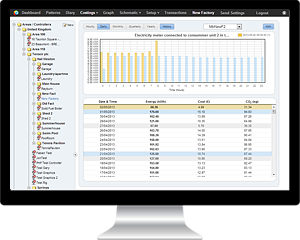100 watt light bulbs banned
As from 1st September 2009 the manufacture and import of 100 watt and all frosted finished incandescent light bulbs will be banned in the EU as part of Europe"s bid to cut energy costs. The 100 watt light bulbs will be replaced by the energy-saving fluorescent variety.These are the compact fluorescent lamps commonly found in supermarkets. They use 80% less electricity than incandescent bulbs and last longer. The new rules will be extended to 75 watt bulbs from September 2010 and 60 watt bulbs from 2011.
Average gas to be over £1,000 a year
Centrica, the UK"s biggest supplier of domestic energy has said that they expect the average price of home gas bills to go up from an average last year of £600 per household to over £1,000 this year. They say that gas prices are linked to the price of oil and that is the reason for increases.
HeatingSave House and Home now Government Approved
The HeatingSave House and Home system for domestic dwellings has obtained Government approval from DEFRA via the Carbon Trust. The prestigious Energy Technology List of approved products registers energy saving products that have been scientifically tested and proven to save energy and reduce CO2 emissions.
New Scheme Launched to Insulate Britain
A new scheme has been launched in collaboration with businesses and the government to increase insulation in British Homes. The "Insulate Today" plan is part of the "we will if you will" campaign and is being backed by the Energy Saving Trust along with Accenture, Aviva, HSBC, Sainsbury"s ACT ON CO2 and EDF Energy.The scheme will include:
HeatingSave can cut building carbon emissions by 30 per cent
The coalition is making energy plans that will reduce the UK's reliance on fossil fuels. Moves to boost investment in renewable energy and nuclear power stations were set out by the Government as it promised to reduce Britain's dependency on fossil fuels and cut carbon emissions. Chris Huhne, the Energy and Climate Change Secretary, pledged the "lights are not going to go out on my watch" as he announced 32 measures to make the country less reliant on imported oil and gas.
Leave the car at home HeatingSave shaves a quarter from heating bills
Average petrol prices spiralled to a record high of 120p a litre this month – and went even higher in remote communities. As well as ingenious individual and collective schemes (Liftshare.com promotes the use of car pools), HeatingSave is a more straightforward method of cutting a quarter from your fuel bills.
Savings from central heating management help get green vote
The new coalition government is almost literally banking on the green vote as part of initiatives announced in the Queen's speech. As well as promising a new energy bill in the next parliament, the Conservative and Liberal alliance said it would set up a green investment bank so that householders will be entitled to borrow money to pay for carbon-reducing measures. The idea is called a "pay-as-you-save" approach. Households would repay the loan using money saved through lower energy bills.
Home Boiler Control system reduces domestic carbon footprint
Manchester United footballer Gary Neville has submitted plans for a subterranean £6m carbon-zero home. It is due to go up next to the 12-bedroom property that he and his wife have already constructed on the site of the hamlet he owns in Harwood, in the Lancashire Pennines. The defender commissioned one of the country's leading architects to come up with the design.
Fuel Poverty on the rise this winter
Concerns are growing that more and more people are going to be pushed into fuel poverty this winter. This was likely to have happened because of the rising cost of fuel but has been accelerated by the recession and in particular the sudden and increasing rise in unemployment. Some sources say this will affect hundreds of thousands more households.
Over 16 million UK households could use HeatingSave’s PC software
The Office for National Statistics have said that over 16 million households in the UK now have an Internet access, up by about 10% on 2007. With every Internet access goes a PC, a PC that could be running the latest HeatingSave software and reducing the cost of central heating bills.






